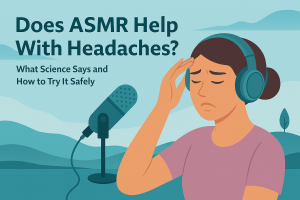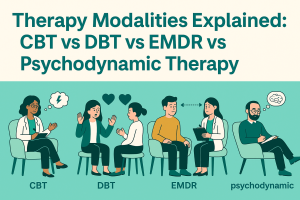Teens today are dealing with a unique kind of fear—one that didn’t dominate their parents’ childhoods. It’s the fear of inheriting a world altered by climate change. From rising seas to vanishing species, from hurricanes to heatwaves, the threats feel immediate, terrifying, and way too big to fix alone.
This emotional storm has a name: climate anxiety. And for teens, it’s more than just stress—it’s a persistent fear of an uncertain future.
As a parent, you might feel powerless to help. You can’t stop global warming overnight. But what you can do is be the anchor in your child’s emotional hurricane.
You can listen, guide, and build their resilience. Let’s dive into how to do just that—with compassion, clarity, and action.
What is Teen Climate Anxiety?
Defining Climate Anxiety in Adolescents
Climate anxiety, also known as eco-anxiety, is a chronic fear of environmental doom. For teens, it often comes with a sense of urgency and helplessness. They’re old enough to understand the science and the consequences—but still young enough to feel sidelined from real influence. That tension creates emotional stress that can bleed into other areas of life.
Teen climate anxiety isn’t just about being sad over melting ice caps. It can manifest as deep grief over species loss, rage about inaction, or guilt over personal carbon footprints. Many teens carry this emotional weight silently, afraid that adults won’t take them seriously or will brush off their concerns.
Why Teens Are Especially Vulnerable
Teens are in a stage of intense identity formation. They’re figuring out who they are and what they believe—right as they’re being told the planet is in peril. That’s a brutal combo. They’re not just imagining a future—they’re imagining their future being threatened.
Developmentally, teens also experience emotions more intensely due to changes in the brain’s amygdala and prefrontal cortex. When climate threats feel overwhelming, their ability to regulate those emotions may be underdeveloped.
Common Emotional and Behavioral Signs
Not every teen will say, “I have climate anxiety.” You have to know what to look for. Signs may include:
- Obsessive focus on climate change or eco news
- Feelings of guilt, dread, or helplessness
- Avoiding conversations about the future (college, jobs, having kids)
- Angry outbursts about environmental issues or injustice
- Withdrawal from school or social activities
- Physical symptoms like headaches or insomnia
Recognizing these signs is the first step. The next step? Meaningful support. Let’s explore how.
Why Climate Anxiety Is Rising Among Teens
Media Exposure and Doomscrolling
Teens today live online, and their digital world is full of climate horror. TikTok, Instagram, and YouTube are flooded with images of burning forests, dead marine life, and devastated communities. While awareness is important, overexposure without emotional tools creates anxiety.
Many teens engage in “doomscrolling”—consuming negative news compulsively. This creates a loop of fear that can be hard to break without adult intervention or structured conversation.
School Curriculum and Awareness
Schools now teach climate change in science and social studies. That’s great for awareness—but it’s not always paired with emotional guidance. Teens might learn that coral reefs are dying, but not how to emotionally process that loss.
When paired with exams, peer pressure, and future planning, this information overload becomes mentally exhausting. It’s the weight of knowing the world is on fire—while still being expected to ace your algebra test.
Fear for the Future and Generational Grief
Many teens feel like they’re growing up in a broken world. They hear mixed messages: “Dream big,” but also “The planet may not survive.” This creates generational grief—a mourning for a future that might not exist as imagined.
It’s not just sadness. It’s betrayal. Teens feel like they’re cleaning up a mess they didn’t make. And that betrayal often leads to mistrust in systems—governments, corporations, even adults in general.
1. Start Honest, Supportive Conversations
Listen Without Judgment or Dismissal
The first step to helping your teen? Let them talk. And when they do, really listen. Don’t rush to reassure or correct. Instead, say things like:
- “That sounds really heavy. Want to tell me more?”
- “I can see this matters to you.”
- “I’m here, and I want to understand.”
Validate their feelings even if they scare you. They’re not looking for you to have all the answers—they’re looking for emotional safety.
Normalize Their Emotions
Say things like:
- “A lot of people your age feel this way. It makes sense.”
- “I’ve felt overwhelmed by climate stuff too.”
This reminds them they’re not alone and that their emotions are appropriate, not pathological.
Answer Questions Honestly (But Age-Appropriately)
If your teen asks, “Are we going to be okay?” you don’t need to lie—but don’t spread panic either. You might say:
- “Climate change is serious, but people around the world are working hard on solutions. We can be part of that.”
- “It’s okay to be scared and hopeful at the same time.”
Honest, grounded answers help build trust—and resilience.
2. Empower Them with Climate Education and Action
Teach Critical Thinking Around Climate News
Not all climate content online is accurate or helpful. Teach your teen how to fact-check, identify fear-based clickbait, and seek out credible sources. Help them create a digital diet that includes solution-oriented content, not just doom.
Encourage Local Involvement and Solutions
Activism is a powerful antidote to eco-anxiety. Encourage them to join local climate clubs, attend youth-led rallies, or volunteer for tree-planting events. Help them feel part of something larger than themselves.
NYC-based youth orgs like Fridays for Future NYC or Sunrise Movement offer safe, empowering spaces where teens can take action.
Highlight Climate Progress and Positivity
There is good news out there. Share stories about cities going solar, youth winning legal climate battles, or Indigenous communities restoring land. This balances the narrative and gives teens a reason to hope—and keep going.
3. Prioritize Emotional Resilience and Self-Care
Introduce Mindfulness and Stress Reduction Tools
Teach your teen practical ways to regulate stress—deep breathing, guided meditations, yoga, nature walks, journaling. Frame it not as “fixing anxiety” but as “taking care of your brain and heart.”
Apps like Headspace or Insight Timer can help teens build mindfulness habits on their own terms.
Balance Awareness with Joy and Rest
Remind your teen they’re allowed to take breaks. They can care about the planet and still binge their favorite show, go skateboarding, or laugh with friends. Passion without burnout is the goal.
Joy is an act of resistance. Fun is not frivolous—it’s fuel.
Seek Therapy or Peer Support When Needed
If eco-anxiety becomes debilitating, don’t hesitate to seek professional help. Many NYC therapists specialize in climate-related mental health. Look for counselors who understand teen development and climate grief.
Group support also works. Climate cafés for teens or online youth support groups can be powerful tools for healing through connection.
What Not to Say to an Anxious Teen About Climate
Avoid Dismissive or Overwhelming Language
Phrases like “You’re too young to worry about this” or “The planet will be fine” may come from a good place—but they invalidate your teen’s real fears.
Don’t Force “Toxic Positivity”
Saying “Just stay positive” or “Focus on the good” without acknowledging the bad can make teens feel unseen. Instead, balance truth with hope.
Validate Their Experience Instead of Correcting It
You don’t need to have perfect answers. Just be a steady presence. Reflect back what you hear. Say:
- “I hear how scared you are.”
- “Thank you for trusting me with this.”
Validation builds bridges. And right now, your teen needs a safe one.
Conclusion
Teen climate anxiety is not a phase. It’s a real, rational response to a world in flux. But with your support, your teen doesn’t have to face it alone. You don’t need to fix everything—you just need to show up. Listen, guide, and empower them. Help them rest, recharge, and rise.
Because when we raise emotionally resilient, informed, and hopeful young people, we’re not just coping with climate anxiety—we’re building the future they deserve.
FAQs
1. Is climate anxiety normal in teens?
Yes, it’s increasingly common and considered a rational response to environmental concerns, especially in educated, empathetic teens.
2. Should I let my teen get involved in activism?
Absolutely—activism can reduce feelings of helplessness and build confidence, connection, and hope.
3. What if my teen’s anxiety is affecting their daily life?
Consider speaking to a therapist trained in adolescent mental health or climate-focused counseling for targeted support.
4. Can I talk about my own climate worries with my teen?
Yes, in moderation. It helps to model emotional honesty, but avoid overwhelming them with adult fears.
5. How can I make our home more eco-conscious without adding pressure?
Invite them to help with simple changes—composting, reducing waste, or conserving energy. Frame it as teamwork, not perfection.



